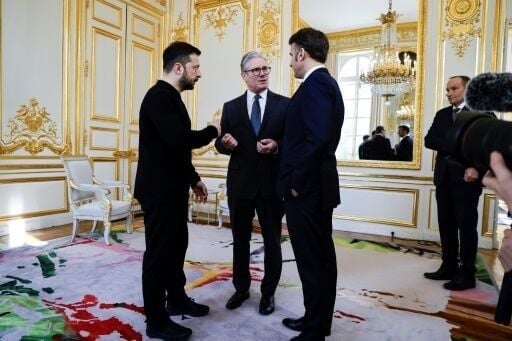At a summit in Paris on Thursday, European leaders opted to strengthen rather than reduce sanctions on Russia, while Britain and France unveiled preparations to send a “reassurance force” to Ukraine following any potential peace agreement.
French President Emmanuel Macron convened the conference with Ukrainian President Volodymyr Zelensky and European allies in an effort to coordinate policy following U.S. President Donald Trump’s direct contacts with the Kremlin, which alarmed European leaders.
While the U.S. claims it is making tentative progress toward a ceasefire, a peace deal remains distant.
Leaders at the Elysee Palace agreed that sanctions on Russia should not be eased, but rather intensified until peace is achieved.
“There was complete clarity that now is not the time to lift sanctions — quite the contrary,” British Prime Minister Keir Starmer said, adding that discussions focused on increasing pressure to support U.S. efforts to bring Russia to the negotiating table.

German Chancellor Olaf Scholz warned that lifting sanctions without a truce would be a “grave mistake.”
Zelensky criticized “very dangerous signals” suggesting some nations, including Saudi Arabia, might consider such a move.
Beyond sanctions, European leaders discussed military support for Ukraine, including the potential deployment of European troops. Macron confirmed that France and Britain were spearheading efforts to send a “reassurance force” after the fighting ends.
French President Macron stressed the force would not be a peacekeeping unit or a substitute for the Ukrainian army but would serve as a deterrent against future Russian aggression.
However, not all European allies would participate due to logistical or political concerns.
Zelensky acknowledged ongoing uncertainty over the force’s structure, leadership and role, saying that “there are many questions but so far, few answers.”
Italian Prime Minister Giorgia Meloni reiterated Rome’s refusal to send troops to Ukraine and called for U.S. involvement in future European discussions on the conflict.
Despite the differences, Starmer hailed the summit as a historic show of European unity: “This is Europe mobilizing together behind the peace process on a scale we haven’t seen for decades.”






